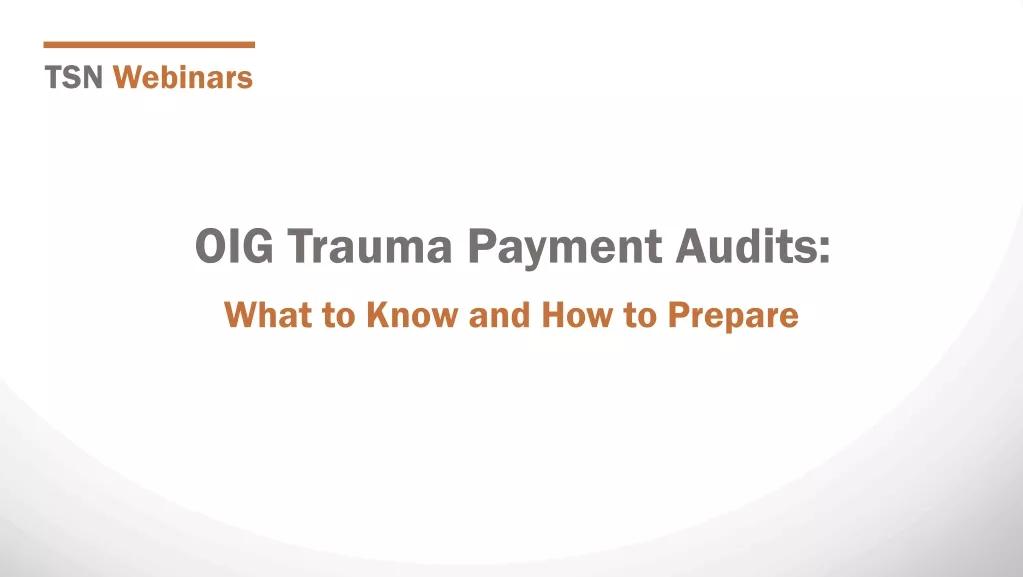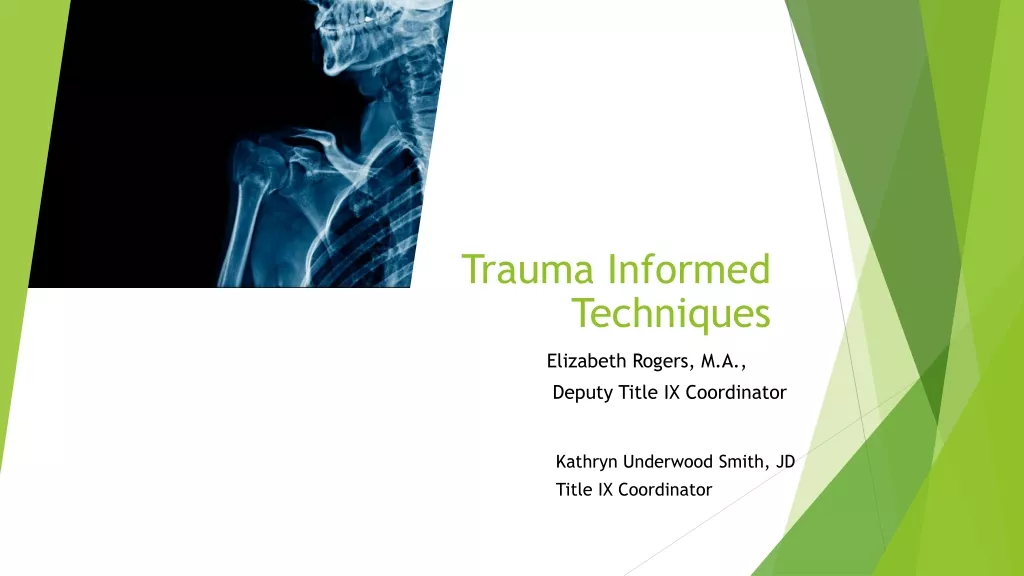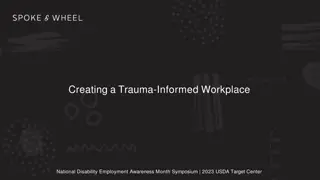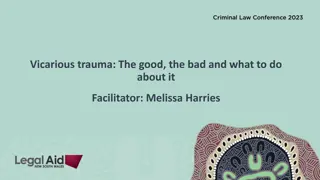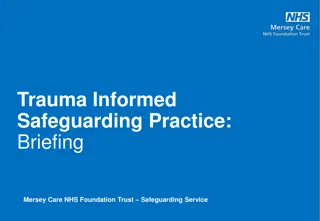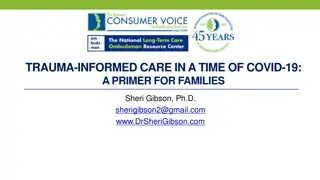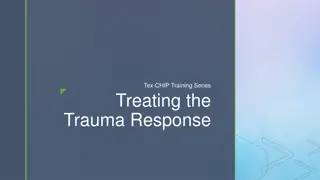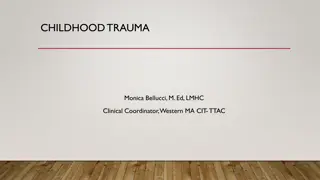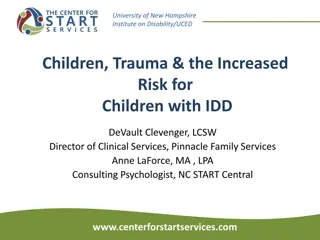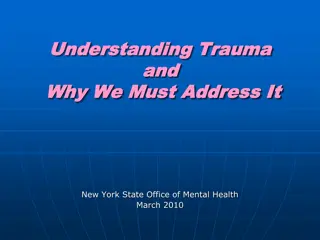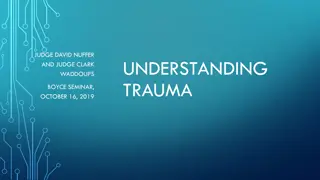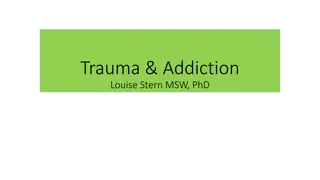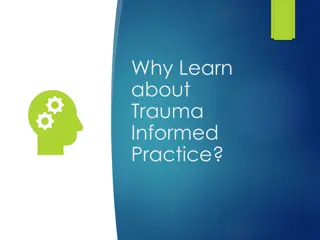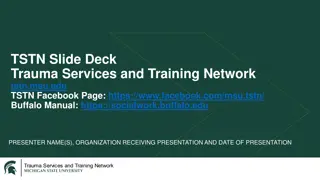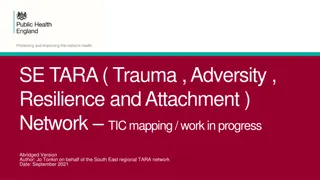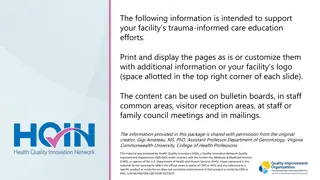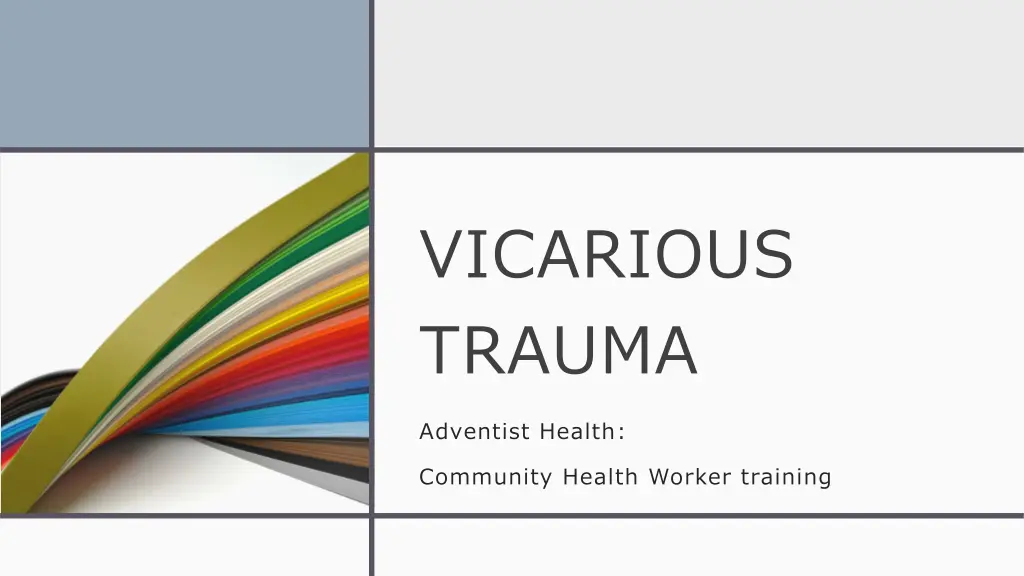
Understanding Vicarious Trauma in Community Health Training
Explore the concept of vicarious trauma and its impact on healthcare workers in this insightful training program by Adventist Health. Learn about the signs, risk factors, and ways to prevent vicarious trauma while engaging with trauma survivors.
Download Presentation

Please find below an Image/Link to download the presentation.
The content on the website is provided AS IS for your information and personal use only. It may not be sold, licensed, or shared on other websites without obtaining consent from the author. If you encounter any issues during the download, it is possible that the publisher has removed the file from their server.
You are allowed to download the files provided on this website for personal or commercial use, subject to the condition that they are used lawfully. All files are the property of their respective owners.
The content on the website is provided AS IS for your information and personal use only. It may not be sold, licensed, or shared on other websites without obtaining consent from the author.
E N D
Presentation Transcript
VICARIOUS TRAUMA Adventist Health: Community Health Worker training
DISCLAIMER Any trainings or talks about trauma can be triggering You are not required to share personal experiences during this training, but we will take time to reflect. Try and notice what comes up for you during this time
AGENDA WHAT, WHO, AND PREVALENCE OF VICARIOUS TRAUMA EXAMPLES OF HOW VICARIOUS TRAUMA SHOWS UP PROTECTIVE FACTORS AGAINST VICARIOUS TRAUMA
What associations do you have with the term vicarious trauma ? What do you already know about this term? What does it make you think of? What reactions do you have to this term? Do you believe in it?
VICARIOUS TRAUMA IS Vicarious trauma is a process of change resulting from empathetic engagement with trauma survivors. - British Medical Association
WHO IS MOST AT RISK FOR VICARIOUS TRAUMA? Anyone who engages empathetically with survivors of traumatic incidents, torture, and material relating to their trauma, is potentially affected, including doctors and other health professionals. _British Medical Association
Up to 85% of helping professionals develop vicarious trauma and/or experience high rates of traumatic symptoms HOW COMMON IS VICARIOUS TRAUMA?
ASSOCIATIONS OTHERS HAVE DEVELOPED FOR VICARIOUS TRAUMA
WHAT ARE THE SIGNS OF VICARIOUS TRAUMA? Stories of people who have experienced vicarious trauma
I didnt even know to call what I was experiencing vicarious trauma. I would go home after seeing patients and I would just lay and mindlessly watch TV. My wife is an accountant. She looks at Excel all day. Her work crisis have to do with spreadsheets. I made the assumption that I couldn t talk to her about what I was going through. I thought she wouldn t understand. I remember being at family dinners and my mind was just somewhere else. Not even thinking about patients, necessarily. In fact, most of the time I wasn t thinking about patients. My kid would be talking about his day, and I d be thinking about house projects, news stories I d heard. I just couldn t really be in the moment anywhere. My mind would just wander. Example 1
If this was your colleague, how would you handle it? What resources are in place within Adventist Health to help with this?
What the research says One of the key signs of vicarious trauma is distancing, numbing, mind wandering, not being able to connect.
I became kind of obsessive about my patients. Id stay in the office until 8 or 9pm, and sometimes bring work home with me after that. When I wasn t at work, I would think about how to solve things going on in their life. I just felt like no one but me was really invested in helping them in the same way I was. I was consumed by it. I think it became worse because my boss would always praise me about it. At staff meetings, he d congratulate me for staying later in the office. I even won an Employee of the Month award for buying a patient lunch who looked hungry. I didn t realize how deep I was in. I once bought a patient a UHAUL so she could move out of a bad living situation, and then she never showed up to move. That made me really think... Example 2
If this was your colleague, how would you handle it? What resources are in place within Adventist Health to help with this?
What the research says One of the key signs of vicarious trauma is becoming overly involved with patients, being preoccupied with patients outside the workplace; difficulty maintaining personal boundaries, (trying to do more than what is in your role to help patients)
When I first started, I cared so much. You know? I see all these young people coming in, and they remind me of myself. Now I just know, you can t help people who don t want to be helped. It s like, if you don t show up to an appointment---I don t make exceptions anymore. I ve learned. You really have to hold people accountable. That s how change happens. Tough love, baby. Tough love. Example 3
If this was your colleague, how would you handle it? What resources are in place within Adventist Health to help with this?
What the research says One of the key signs of vicarious trauma is experiencing feelings of rage, anger, and sadness about a patient s story and circumstance
WHAT ACTIONS PROTECT YOU AGAINST VICARIOUS TRAUMA?
Have you ever been in a room and someone enters in a bad mood and the energy of the space shifts? If we just consider this one example, what helps shift the mood in that room, or protects you against feeling the tension?
REFLECTION QUESTIONS (YOU DO NOT HAVE TO SHARE): How does vicarious trauma show up for you? What are the best parts of your self-care routine that you need to maintain in order for you to feel fulfilled? Are there any factors you d want to make sure your work team and/or people in your personal life know about you to alert you that you may be experiencing vicarious trauma.

